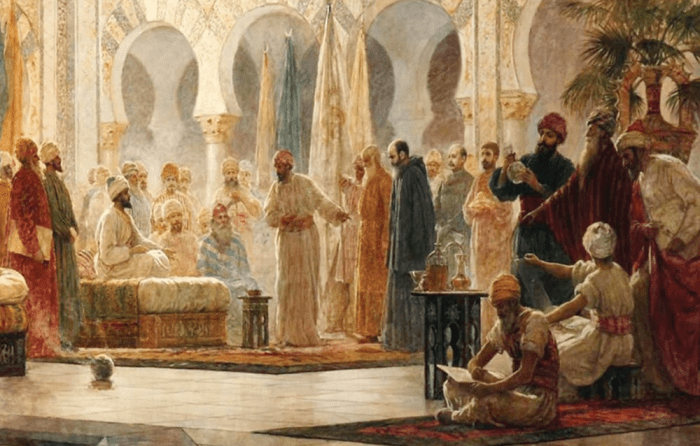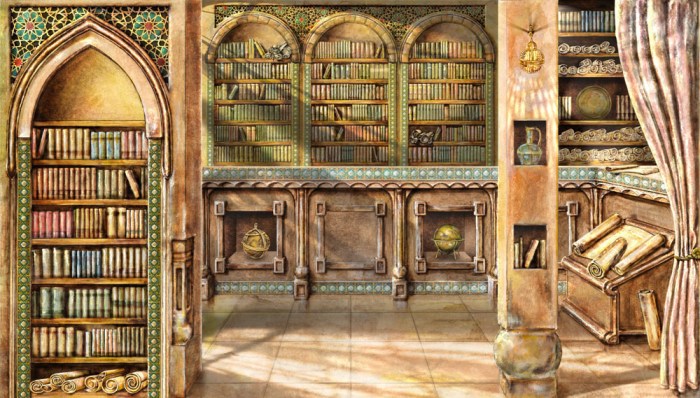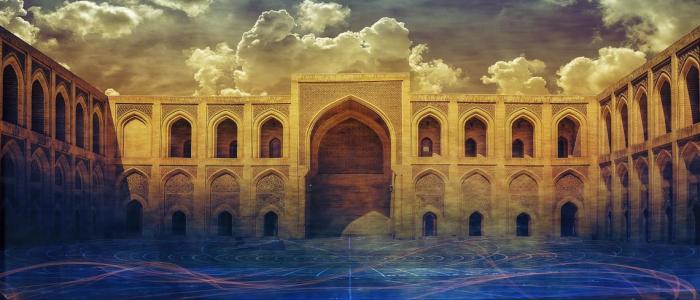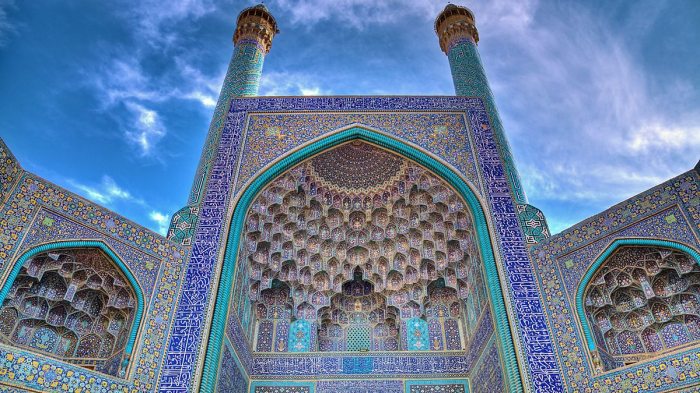Islamic house of wisdom prayer time – Delving into the annals of Islamic history, the Islamic House of Wisdom emerges as a beacon of knowledge and innovation, playing a pivotal role in shaping the understanding and practice of prayer time in the Islamic Golden Age. This discourse will explore the profound intersection between this esteemed institution and the sacred duty of prayer, shedding light on the intricate relationship between scholarship and religious observance.
The Islamic House of Wisdom, established in Baghdad during the reign of the Abbasid caliphs, was a vibrant center of learning that attracted scholars, astronomers, and intellectuals from across the Islamic world. Within its hallowed halls, these erudite minds dedicated themselves to the pursuit of knowledge, translating ancient texts, conducting scientific experiments, and advancing the frontiers of human understanding.
Overview of Islamic House of Wisdom: Islamic House Of Wisdom Prayer Time

The Islamic House of Wisdom, known as Bayt al-Hikma in Arabic, played a pivotal role in the advancement of knowledge during the Islamic Golden Age.
Established in Baghdad, Iraq, during the reign of the Abbasid Caliph Harun al-Rashid in the 9th century, the House of Wisdom served as a center of learning and intellectual exchange. It brought together scholars, scientists, and philosophers from across the Islamic world and beyond, fostering a vibrant intellectual environment.
Establishment and Purpose
The House of Wisdom was founded with the aim of translating and preserving the works of ancient Greek philosophers, scientists, and mathematicians into Arabic. This initiative was part of a broader effort by the Abbasid caliphs to promote knowledge and scholarship within the Islamic empire.
The House of Wisdom became a hub for the study of a wide range of subjects, including philosophy, medicine, mathematics, astronomy, and literature. It attracted scholars from various backgrounds, including Muslims, Christians, Jews, and Zoroastrians, who worked together to advance knowledge and understanding.
Role in the Islamic Golden Age
The Islamic House of Wisdom played a significant role in the flourishing of the Islamic Golden Age, a period of scientific and cultural advancement that lasted from the 8th to the 13th centuries.
The scholars who worked at the House of Wisdom made important contributions to various fields of knowledge. They translated and preserved the works of ancient Greek philosophers, such as Aristotle and Plato, and made significant advancements in mathematics, astronomy, and medicine.
The House of Wisdom also became a center for the development of new ideas and theories, and its scholars played a key role in the transmission of knowledge from the ancient world to the medieval Islamic world.
Prayer Time in Islamic Culture

Prayer is a fundamental pillar of Islam, holding immense importance in the lives of Muslims. It serves as a direct connection between the individual and Allah, fostering spiritual growth and purification.
Muslims are obligated to perform five daily prayers at specific times throughout the day. These prayer times are derived from the Quran and the teachings of Prophet Muhammad (PBUH).
Methods of Determining Prayer Times
The accurate determination of prayer times is crucial for Muslims to fulfill their religious obligations. Various methods are employed to calculate prayer times, including:
- Astronomical Calculations:This method involves using mathematical formulas and astronomical data to calculate the exact time of sunrise, sunset, and other key points that determine prayer times.
- Local Timetables:Many mosques and Islamic organizations publish local prayer timetables based on astronomical calculations or observations. These timetables provide the specific times for each prayer throughout the year.
- Smartphone Applications:Numerous smartphone applications utilize GPS and astronomical data to provide accurate prayer times for the user’s current location.
The Intersection of the Islamic House of Wisdom and Prayer Time

The Islamic House of Wisdom was a renowned center of scholarship and learning during the Islamic Golden Age. Its scholars and astronomers played a pivotal role in advancing knowledge in various fields, including astronomy and mathematics. This had a direct impact on the accurate determination of prayer times, which are an essential aspect of Islamic religious practice.
Astronomical Calculations
The astronomers at the House of Wisdom developed sophisticated astronomical models and techniques to calculate the positions of the sun and moon with great precision. This knowledge was crucial for determining the times of sunrise, sunset, and the zenith (highest point in the sky), which are key reference points for prayer times.
They used instruments such as astrolabes and quadrants to measure the angles of celestial bodies and calculate their positions. These calculations were then used to create tables and charts that could be consulted to determine prayer times for different locations and times of the year.
Role of Scholars
The scholars at the House of Wisdom played an equally important role in interpreting and disseminating the astronomical knowledge related to prayer times. They studied the Quran and Hadith (sayings and actions of the Prophet Muhammad) to derive the principles and guidelines for determining prayer times.
They also compiled and organized the astronomical data and calculations into practical manuals and guides that could be used by religious leaders and the general population to accurately determine prayer times.
Examples
- The Zij al-Sindhind, compiled by al-Khwarizmi in the 9th century, was an influential astronomical treatise that included tables for calculating prayer times.
- The Maqalat fi Hisab al-Fara’idby al-Biruni in the 11th century provided detailed instructions on how to determine prayer times using astronomical observations.
These works and others played a significant role in ensuring that Muslims could fulfill their religious obligations of prayer at the correct times, regardless of their location or the time of year.
Historical Impact of the Islamic House of Wisdom on Prayer Time

The Islamic House of Wisdom was a renowned center of learning during the Islamic Golden Age, where scholars made significant contributions to various fields of knowledge, including astronomy and mathematics. Their work had a profound impact on the understanding and practice of prayer times in Islamic culture.
Advances in Astronomy and Prayer Times, Islamic house of wisdom prayer time
Scholars at the House of Wisdom made advancements in astronomy, particularly in the calculation of the positions of celestial bodies. This knowledge was crucial for determining prayer times, as the start and end of each prayer period is based on the position of the sun.
By refining astronomical calculations, scholars were able to develop more accurate prayer timetables.
Development of Mathematical Tools
The scholars at the House of Wisdom also developed mathematical tools and techniques that facilitated the calculation of prayer times. They devised trigonometric formulas and computational methods that simplified the process of determining the exact time for each prayer. These mathematical tools continue to be used by astronomers and religious scholars today.
Impact on Islamic Religious Practices
The advancements made by scholars at the Islamic House of Wisdom had a significant impact on Islamic religious practices. More accurate prayer times allowed Muslims to perform their prayers at the correct time, ensuring that they fulfilled their religious obligations.
This contributed to the standardization of prayer times across the Islamic world and promoted a sense of unity among Muslims.
Continued Use Today
The methods and techniques developed by scholars at the Islamic House of Wisdom continue to be used today for calculating prayer times. Astronomical observatories and religious institutions around the world rely on these methods to determine the precise times for daily prayers.
This ensures that Muslims worldwide can fulfill their religious obligations with accuracy and consistency.
Answers to Common Questions
What was the significance of the Islamic House of Wisdom?
The Islamic House of Wisdom was a renowned center of learning and knowledge in the Islamic Golden Age, attracting scholars and intellectuals from across the world. It played a pivotal role in translating ancient texts, conducting scientific experiments, and advancing the frontiers of human understanding.
How did the Islamic House of Wisdom influence prayer time?
The scholars and astronomers at the Islamic House of Wisdom played a crucial role in determining accurate prayer times. They developed tools and techniques to calculate the precise times for the five daily prayers, ensuring the proper observance of this sacred duty.
What is the importance of prayer in Islam?
Prayer is one of the five pillars of Islam and is considered a fundamental obligation for all Muslims. It is a direct connection between the individual and God, allowing believers to express their devotion, seek guidance, and receive blessings.